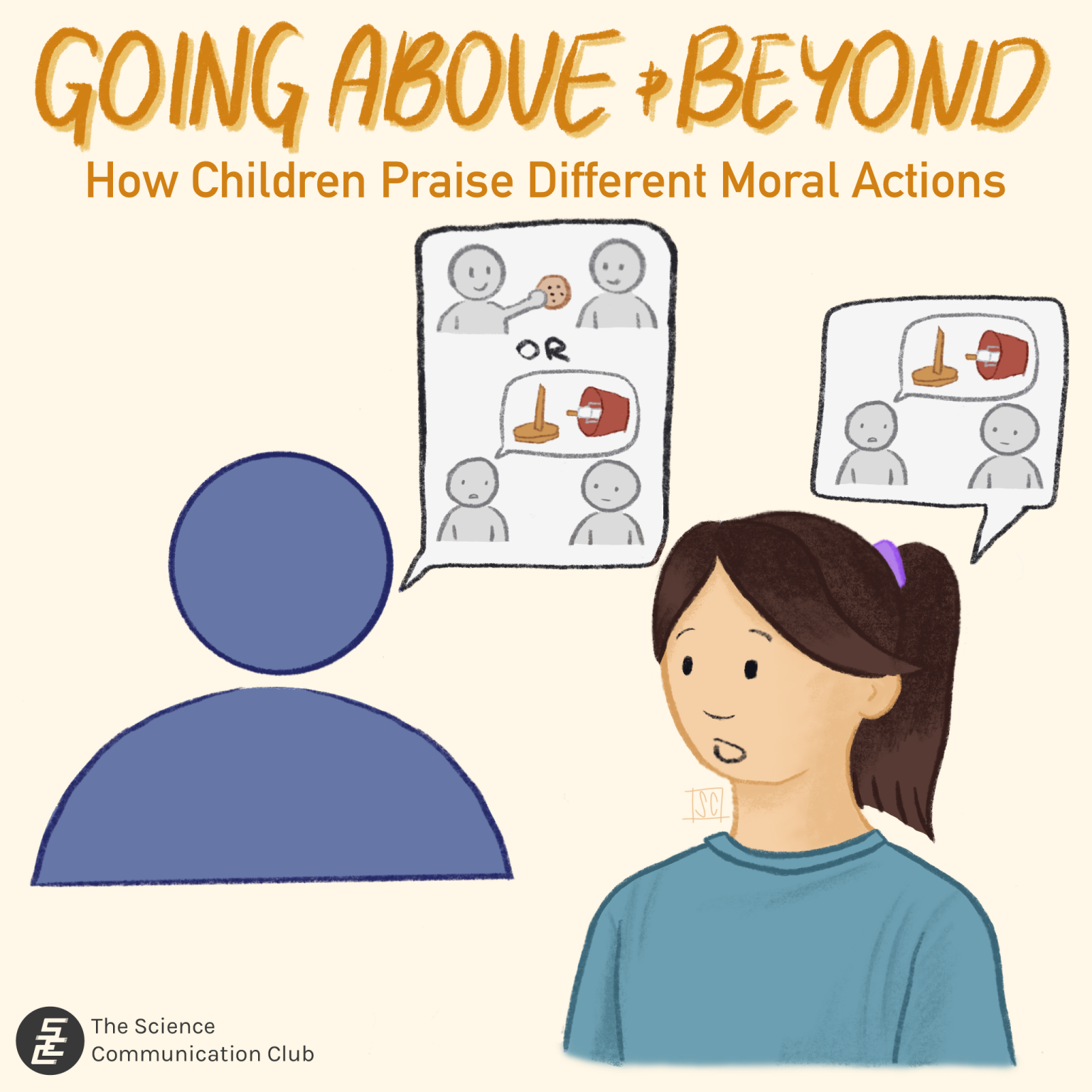
Written by Umang Khan
Illustrated by Sabrina Chen
Imagine your colleague comes to you and says “Hey, guess what, I gave a charity $1000 today.” You would probably be impressed and give them a lot of moral praise for it. Now imagine another colleague came by and said “Nice, and I didn’t steal anything today!” You might not be as impressed, right?
The first moral act is considered a supererogatory act while the second is considered an obligatory act. What is interesting about these two categories of moral actions is the asymmetry in the way we assign moral blame and moral praise. On one hand, obligatory acts are defined as actions you must do in order to be a good person (e.g., not murdering someone) but fulfilling them doesn’t get you a lot of moral praise. However, not fulfilling them will definitely get you a lot of moral blame! On the other hand, supererogatory acts are defined as actions that go above and beyond one’s moral duty (e.g., donating a kidney), and doing them gets you a lot of moral praise. However, not doing these acts is considered completely acceptable.
These moral judgments seem to be part of our everyday intuition, suggesting that this kind of understanding may be universal and may even be early emerging. Perhaps this intuition develops during childhood and continues the same way into adulthood.
For the most part, children understand obligation in terms of relationships. For example, older children understand a parent’s obligation to their child.¹ But how do children evaluate obligation in general as opposed to obligation with regards to social relationships? How would children judge the examples above?
Luckily, there’s research that looks at exactly that! In a study published in 2023, 5- to 8-year-old children and adults were asked to morally evaluate characters who performed obligatory actions (e.g., telling the truth) versus supererogatory actions (e.g., shovelling their neighbour’s driveway for them).² While adults expectedly preferred the character who performed the supererogatory actions, children responded in the opposite way. They preferred the character who performed the obligatory action. In other words, children would give you more credit for not stealing today than for giving $1000 to charity.

As a result, the researchers thought that maybe children didn’t understand that supererogatory actions are morally good actions that people go out of their way to do. So, they asked the children again but this time, after each scenario, children were asked whether they thought the character actually had to do the action or not. The findings show that children understood that the character was going out of their way to perform the supererogatory actions, yet still judged the obligatory action as better.
Okay, so maybe it’s because the obligatory actions and the supererogatory actions are just completely different from each other – shovelling your neighbour’s driveway requires a different type of effort or reasoning than telling the truth. It’s like comparing apples to oranges. To follow up on this, children were asked about the same action in both an obligatory version (e.g., the character shoveled their neighbour’s driveway after being told to by their parent) and a supererogatory version (e.g., the character shovelled their neighbour’s driveway voluntarily). Children still preferred the obligatory action. This time, though, there was slightly more preference for the supererogatory version in the older children but still not as much as adults. Why could this be?
Perhaps children value obligatory actions more because the consequence of not performing an obligatory act can be dire. If it’s so bad to lie, then it must be so good to tell the truth. Another reason may be that as we get older, we navigate our social world more maturely and come to see that supererogatory actions are more telling of a person’s character than obligatory ones. Children may not have learned this concept, so they do not yet know how to make inferences about people’s character based on their morally supererogatory behaviour.
Finally, there could also be cross-cultural variations. Though children may universally understand the importance of fulfilling moral obligations, they may differ in how they value supererogatory acts. Perhaps, in some cultures, children may praise supererogatory acts earlier in their development. Incorporating more cross-cultural research on this topic can further illuminate our understanding of children’s evaluations of these moral categories.³
Sources:
- Marshall J, Gollwitzer A, Mermin-Bunnell K, Shinomiya M, Retelsdorf J, Bloom P. 2022. How development and culture shape intuitions about prosocial obligations. J Exp Psychol : Gen. 151(8):1866-82.
- Khan U, Jaffer-Diaz M, Anahid Najafizadeh, Starmans C. 2023. Going above and beyond? Early reasoning about which moral acts are best. Cognition. 236:105444–105444. doi:10.1016/j.cognition.2023.105444.
- Amir D, McAuliffe K. 2020. Cross-cultural, developmental psychology: integrating approaches and key insights. Evolution and Human Behavior. 41(5). doi:10.1016/j.evolhumbehav.2020.06.006.